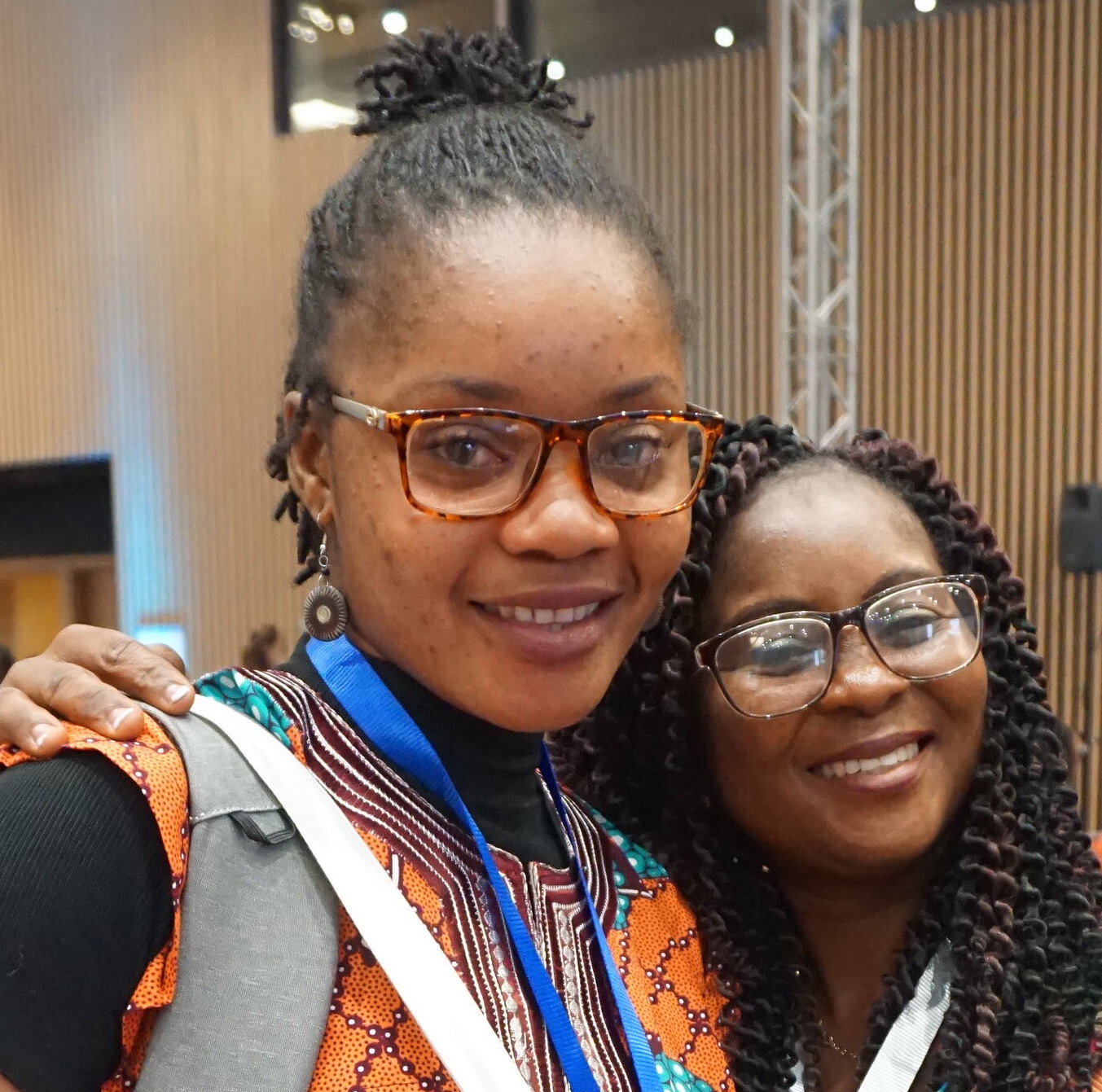In November 2019, over 1,000 people from 81 countries participated in the third Women Leaders in Global Health conference in Kigali, Rwanda. Two leaders—Estherlyn Peters of Last Mile Health and Featha Kolubah of Liberia’s Ministry of Health—spoke at the conference to share their commitment to advancing gender equity and universal health coverage in Liberia and beyond.
Estherlyn M. Peters: Last Mile Health’s first female Digital Health Operator
Estherlyn M. Peters is used to breaking barriers. She joined Last Mile Health in October 2018 as the first woman on the digital health team, and since then, she has supported the team to reach an important milestone: distribution of smartphones and accessories to 100% of the community and frontline health workers in Liberia’s National Community Health Assistant Program. She not only led the distribution of smartphones to 400 community health workers across two counties, but she also scripted and produced videos that are now on every smartphone that has been deployed across the country with clinical and digital education resources.
In recognition of her incredible work in Liberia, Estherlyn was selected out of a pool of 400 applicants to speak at the Women Leaders in Global Health conference alongside 17 other young leaders. At the conference, she spoke about the power of representation in digital health and shared her passion for leveraging innovation to provide access to health education. That passion was tested during a digital health deployment in 2019, when she and her team traversed muddy roads and swollen rivers to train community and frontline health workers in the national program how to use a smartphone to enhance their ability to diagnose and test for common ailments like malaria and malnutrition.
During her session, Estherlyn recalled a training where a female community health worker commented that she had only seen men use smartphones for health education before. Estherlyn told her, “If I can do this, you can too.” Now, every community and frontline health worker in Liberia’s national program has a smartphone. As Estherlyn said, this has “enhanced the learning and work of many female health workers, with the aim to break the barrier of gender inequality in access to health education and support the provision of high-quality healthcare.”
Featha Kolubah, RN: Community Health Focal Person for the Grand Bassa County Health team
As a nurse, Featha Kolubah understands the importance of universal access to healthcare. In Liberia’s Grand Bassa County, where she has been working for over a decade, nearly 50% of patients live more than an hour walk away from the nearest clinic—a barrier that often causes patients to come to her clinic too late to be treated for a preventable disease. She witnessed the devastating consequences of a weakened health system culminate during the Ebola epidemic. She remembers treating a pregnant woman with the Ebola virus—though Featha and her team were able to safely deliver the baby, they tragically lost the mother. “It was so disheartening,” Featha said.
The Ebola epidemic motivated Featha to pursue a job outside the clinic walls in order to better support patients directly in their homes. Now, she is on the frontline of expanding access to care for rural and remote Liberians as the Community Health Focal Person for the Grand Bassa County Health team. In this role, she oversees the implementation of the National Community Health Assistant Program at county-level and works alongside implementing partners like Last Mile Health to recruit and train the community and frontline health workers who make this work possible. She spends about 80% of her time in the community, traveling hours by motorbike and on foot to reach remote corners of the county to support trainings, provide mentorship, and meet with frontline health workers in their communities. She said, “The community needs somebody out there that cares for them. That is me.”
At the Women Leaders in Global Health conference, Featha was nominated by the Liberia Ministry of Health to join a historic frontline health worker-only panel with other leaders from Ethiopia, India, Haiti, and Rwanda. She used the opportunity to elevate the gendered barriers for women to deliver and receive community healthcare in Liberia, including limited access to education in rural areas, safety concerns, and expectations for women to manage households and children. However, she highlighted how the National Community Health Assistant Program is empowering women with paid positions as community and frontline health workers, which allows them to support their families and even pursue additional educational opportunities. It also has an impact on the quality of care provided on the community-level; she cited an example of a young woman who was more comfortable speaking to a female community health worker about family planning methods. Ultimately, Featha said, “We need more women in community health.” Despite the challenging work that requires long days in the field, she knows the work she is doing is vital to not only provide life-saving care but also inspire the next generation of female frontline health workers.





